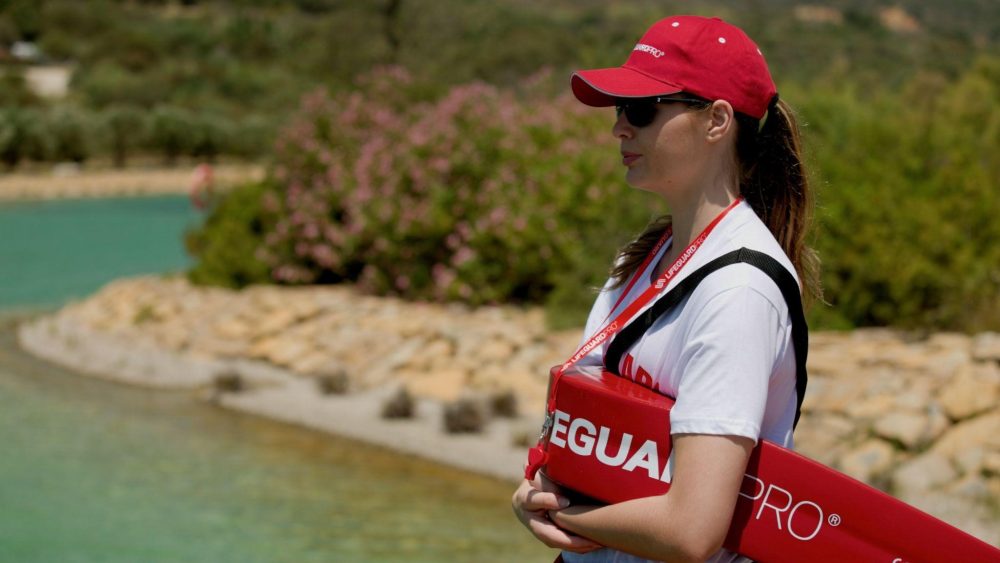We all recognize the depiction of a lifeguard: an observant person sitting at a height overlooking either a dazzling pool or a sandy beach, watching the water with a certain quiet authority. People see this in the summertime and think, “How utopian!” Yet, even beyond the commitment of a few hours a week, so many individuals are starting to realize lifeguarding can provide a lot more – it can provide a starting point to a lifelong, respected, satisfying, and secure career.
There would be no better time to start considering a career in professional lifeguarding than when, all across the country, aquatic facilities are experiencing acute shortages of trained professionals. A career in professional lifeguarding combines physical and mental challenge, and most importantly, the deep satisfaction of safeguarding our communities. The only two essential aspects to this rewarding career are participating in a recognized lifeguard course and undertaking the full commitment to the complete training.
Choosing the Best Lifeguarding Classes
Enrolling in reputed training programs is the initial step toward a career as a professional lifeguard. It is essential to choose the appropriate program since the training you get will determine your skills and self-assurance at work. The American Lifeguard Association is a top lifeguard training organization that offers certification programs that adhere to these high standards. Their programs combine practical skill development with necessary theoretical understanding in order to completely prepare students for the realities of the profession.
The Lifeguard training Experience
This rigorous and immersive lifeguard training turns skilled swimmers into confident rescuers. The components of the lifeguard course are incredibly strenuous physical training, including swimming, that is designed to help participants work on their speed, strength, and endurance; however, physical readiness alone is just part of the bigger picture. Immediate emergency scenarios and realistic rescue simulations are also included in consideration of the trainees’ development. These experiences develop the capacity for teamwork, critical thinking, and decision-making under stressful situations.
Basic topics covered in the classroom include signs of distress, understanding water dynamics, and giving emergency care. Because participants learn to trust each other in situations where they are entirely dependent on one another, the training environment builds camaraderie and trust. Completing this course means that you are certified, but in addition, you have a lot to say about being prepared and being responsible.
Career and Certification Options
After a lifeguard program is finished and all required testing is completed, a graduate receives their professional certificate. With this certification, students can work at community centers, beaches, pools, and water parks. As a rule of thumb, lifeguard certificates are good for two years, and they can be renewed through refresher courses that teach new skills and knowledge. There is a broad and growing career path in lifeguarding. Students can take entry-level employment and grow into the position of head lifeguard, teacher, or manager of aquatics.
There are also specialized course offerings in emergency response training, beach rescue, and waterpark management, among others. The American Lifeguard Association actively promotes lifeguarding as a career and the opportunity for growth, in addition to promoting the need to find qualified workers. Advocacy for lifeguards has increased the public understanding of lifeguards and improved the industry standards and benefits for lifeguards around the country.
Impacts of Working as a Lifeguard
Taking on the status of a lifeguard is choosing to protect people and serve others and your community. Professional lifeguards have a responsibility for keeping people’s minds free of concern while helping to prevent disasters. The experience of being a lifeguard involves keeping people safe in the water, supervisor/leadership roles, emergency response planning, public speaking/effective communication, and dealing with various types of people in sometimes public spaces. Leadership and emergency skills are transferable operational skills. Lifeguarding positions are typically everywhere we turn.
Many of the opportunities provide some affordance for advancement, in addition to a wage that is fair. I’m excited that I became a professional lifeguard because I became part of a community of people working for a purpose, to help save lives, enjoy nature, and provide a positive and safe experience for everyone.
Answer the Call
Professional lifeguarding could be the ideal career if you’re searching for one that provides meaning, challenges you, and allows you to change the world. Begin by looking into lifeguard courses in your area and choosing one that will teach you the necessary skills and information. Accept the lifeguard training process as a chance to develop and get ready for a position of significance and respect. You may transform your commitment to safety into a lucrative and long-lasting career by working hard and getting the necessary training.



